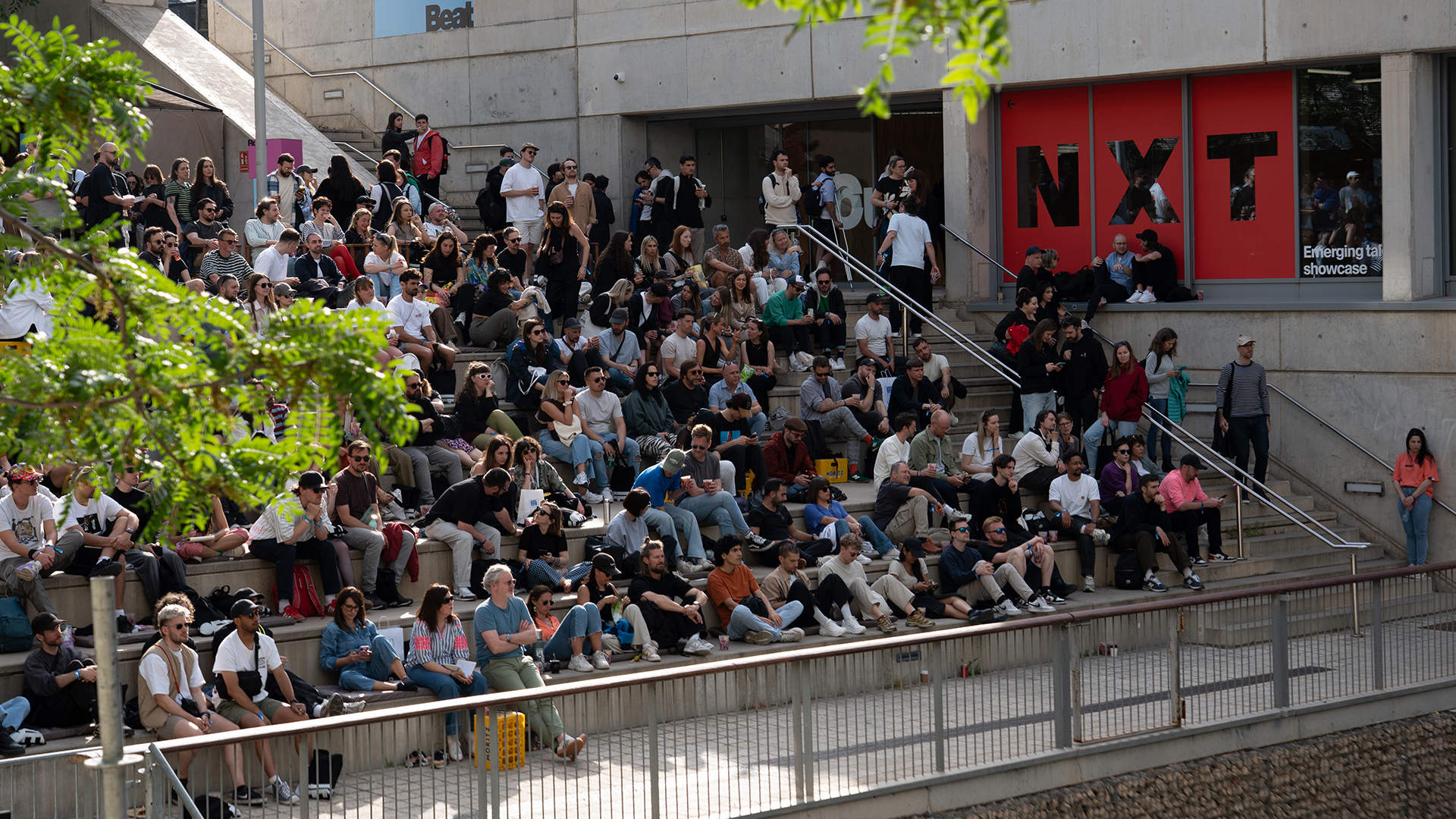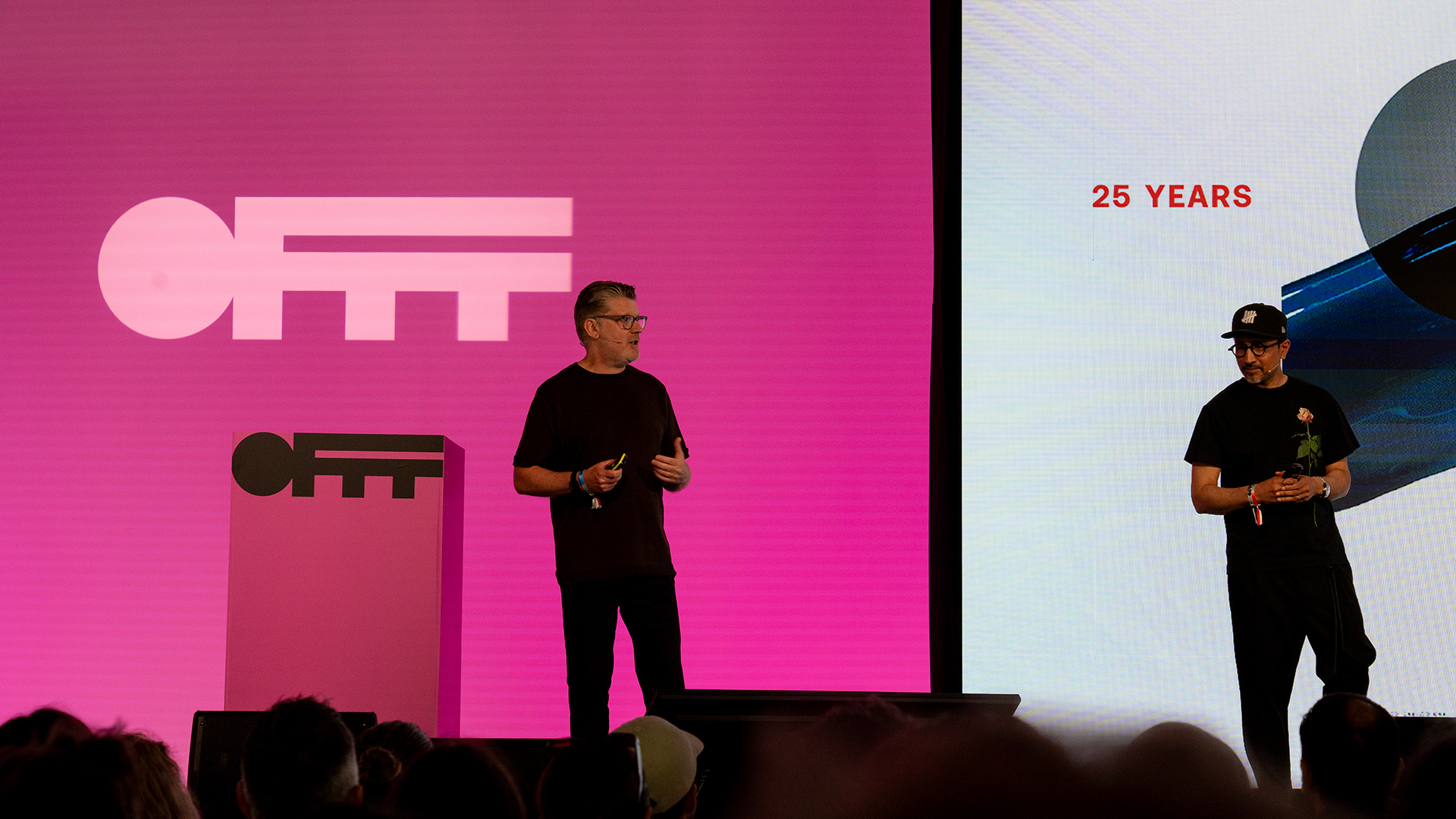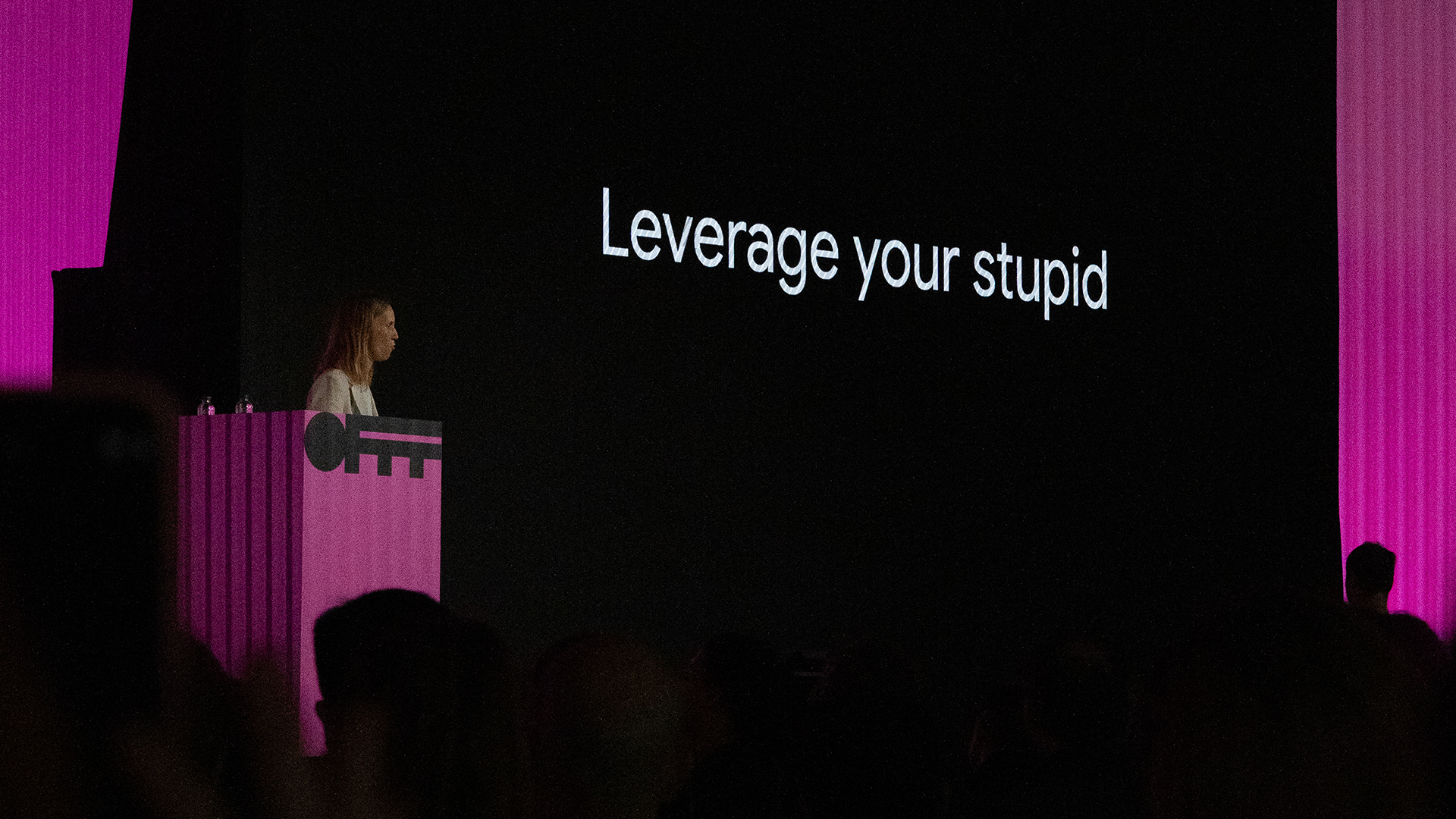If you follow us on Instagram, you’ll know we attend OFFF in Barcelona almost every year.
OFFF is a three-day celebration of creativity, welcoming around 5000 people from over 85 countries to hear from 100+ high profile speakers in the worlds of graphic, product, and motion design. Previous speakers have included those from Meta, Google, CNN, Automattic, and DixonBaxi.
The design festival serves as a creative reset for the team, and takes place Disseny Hub, located in Plaça de les Glòries, next to one of Barcelona’s more contemporary landmarks, Torre Glòries.
With less than six months to go until OFFF 2026 – I’ve taken some time to reflect on this year’s festival with three key lessons.
TL;DR: be optimistic, be stupid, be ethical.

1 – Be the optimist in the room / Care more than you think you should (DixonBaxi / Alex Center)
You aren’t creating something for everyone, you are creating everything for someone.
Both Simon (Dixon) and Aporva (Baxi) emphasised the importance of understanding every touchpoint within a design system: it has to work in the smallest moments as well as the big ones.
The best way to do that? Be excited by what you are doing, be enthusiastic and have a passion for detail that others would miss. Over in the US, enthusiasm seems to come more naturally (case and point Alex Center). I don’t know whether it’s our dry sense of humour or our tendency towards self-deprecation, but we Brits often downplay our passion for the craft.

2 – Leverage your stupid / Value understanding disciplines adjacent to your own (Julia Hoffmann, Google Creative Labs / Field.io)
Ignorance, in the right context, can be a superpower.
It’s so easy to get wrapped up in a project and make assumptions based on our own expertise. Sometimes we try to be a bit too clever when simplicity is king (this happened to me presenting visuals to a client last week). Don’t overcomplicate things; who is this for and what problem is it solving?
Linked to this, be aware of those disciplines surrounding your own. The EXP team is soon to be nine, which means there is nowhere to hide (in a good, non-sinister-sounding way). We all need to be flexible in our skill sets, which ensures we can collaborate and support each other intuitively. That’s why my days can range from shooting content with clients at events to strategy workshops back at the office, or designing 150-page prospectuses from my desk at home. Just don’t ask me what our tech stack is – Ill leave that to the devs.

3 – AI: Because you can, does it mean you should? (Paul Trillo)
There was no escaping the elephant in the room: AI featured in every talk we attended, reflecting how rapidly this technology is developing. This was a real shift from 2024, where opinion was split for and against: artists typically against, agencies slightly more curious, and technologists all in. Most talks centred around ‘how’ agencies are using generative AI rather than ‘should we’.
Paul Trillo offered one of the most thought-provoking takes, which kicked off with the ‘Slopoganda’ that is filling our socials. Did you know that 57% of all content on the internet is generated by AI? That is a terrifying number – which will only rise – but it underlines the importance of taste, curation and discernment in cutting through the noise.
Until now, the argument has been ‘this technology is too important, we need to scrape the internet with zero consequences’. Nick Clegg (yes, that one) former head of global affairs at Meta, recently suggested that asking artists for permission to use their work to train models would ‘basically kill the AI industry in the country overnight’. Which is a similar vibe to ‘not being able to shoplift will kill the shoplifting industry’.
Paul was the first to convince me that there is another way. Asteria – an ethically sourced AI video model designed for Hollywood – is trained solely on 100% licensed work. This means artists, designers, and videographers are fairly compensated. Also, no copyright issues further down the line. If LLMs (large language models) like this can do it, surely it opens the door from a legal perspective for those who don’t? We aren’t about to take that risk (financially or morally).
Sora 2 just hit 1 million downloads, faster than ChatGPT did – an impressive adoption rate for an invite only tool. But what has it provided? My social feeds are flooded with more slop – but the quality is now another level. However funny it is seeing DJ Princess Diana, you’ve got to question whether the billions pumped into this industry were worth this being the main use. Once the bubble bursts, everything should calm down again.
AI is in every program, app and device we use as standard, but once the obsession drops off, we can concentrate on just using them for what they are: tools.

Look Ahead to 2026
OFFF 2025 was as energising as ever (despite the AI chat dominating everything). Immersing ourselves in this hub of knowledge and inspiration is a vital part of our calendar. It acts as a springboard for the summer ahead and ensures we stay aware of what’s happening globally. More importantly than that, we return fired up and enthused.
Given the pace of AI development, it’ll be interesting to see whether OFFF 2026 leans further into the technology or if we’ll see a renewed appreciation for human creativity and curation – a backlash to the AI-generated “slop” currently overwhelming our feeds.
Either way, OFFF 2026 promises to be another incredible year. If you’re planning to attend, drop us a message and we’ll happily meet you for a drink!



